There are numerous Communities and Factions in Frostpunk 2 with the latter splintering off from the former. These are the people who trust in you as Steward to help them survive the harsh weather conditions thrust upon them. Read on to find out what the difference is between Communities and Factions, and what you need to do to keep them happy.
Communities and Factions are paramount to the survival of your City and job as their Steward.
Table of Contents¶
If you want to jump to a specific section, click on the links below.
Communities¶
Communities are groups of people who all have differing opinions on which direction you should take the city. Some will want you to follow Progression, meaning that you should use technology to survive, while others will want Adaption, where they’ll embrace the cold and learn to live with it by setting up new colonies and settlements.
None of these answers is the “right” answer, but if your decisions take you on one path, you could end up upsetting the other communities to the point they enact civil war, so you’ll need to balance out your actions, so you don’t lean heavily on one side.
(1 of 2) The Frostlanders seek Adaptation.
The Frostlanders seek Adaptation. (left), While the New Londoners are in the favor of Progression. (right)
The main communities in the game are the Frostlanders who favor Adaptation, and the New Londoners who favor Progress. Throughout the game, you’ll get plenty of decisions to make that favor one or the other, and the only correct choice is the one you feel would best help out the city. This can be done by agreeing to their proposals, which often pop up. It could be a law you passed that one agrees with, and the other doesn’t.
One of the biggest things outside how well the City is running is making and breaking promises. When you go to pass a law, you’ll normally have to promise them favors for them to vote on your law to get it passed. Failing to live up to your promises can significantly lower their trust in you.
Factions¶
After a while, factions will begin to splinter off from your main communities, normally from an important decision you choose throughout the game. The most common Factions are Stalwart, Faithkeepers, and Evolvers. These are radicalized factions who have differing opinions to the community they broke off from. This is normally an extreme view of the community they broke off from, while also sharing similar opinions.
(1 of 2) The Evolvers Faction splinter off from the Frostlanders.
The Evolvers Faction splinter off from the Frostlanders. (left), Meanwhile, the Faithkeepers broke from the New Londoners. There are other Factions depending on your choices. (right)
For example, Evolvers come from the Frostlanders community, and although they still believe in Adaptation, they’ll have further beliefs such as Reason and Merit. Faithkeepers on the other hand splintered off from the New Londoners (due to a choice in the Prologue) and favor Progression, but have the Equality and Tradition beliefs.
In short, Factions are a radicalized version of the community they come from. This isn’t all bad, however, as some things you can get from a Faction can help out your city, but it’ll normally come at a cost.
At times, the Factions will frequently hold rallies and protests throughout the City, upsetting (or calming them, depending on their values). If you don’t want them to hinder your populace, you can deradicalize factions.
Fervor and Deradicalization¶
You can deradicalize factions by selecting the action under the Fervor tab (fist icon) when selecting a community, however you’ll need to have at least Favorable relations with that community to do so. This will cause some members of the factions to leave, but it will lower your relations with that Faction.
Another way to decrease the fervor is to build prisons, as this will give you the ability (Round-Up) to detain them, lowering their fervor. However, this will remove them from your workforce.
This is important if a particular Faction is causing too many problems for your city as it will bring the Tension up in it, and if the Tension reaches boiling point (orb in the lower center of the screen), the City can fall into Chaos, normally leading to a game-over.
(1 of 3) If you’re at least at Favorable Relations, you can deradicalize some factions by selecting it in the Fervor tab.
Community and Faction Relations¶
The relationships you foster in the communities plays a pivotal role in whether you’ll get deposed or not; if you are deposed, you’ll get game-over. You can only get deposed if your trust level (yellow bar at the bottom) is deficient, and this can be circumvented by having positive relations with the communities and factions.
Your relations can be improved by meeting that community’s worldview, keeping your promises, granting them agendas, funding their projects, raising their funds, and selecting specific choices from events that occur.
(1 of 3) Always keep an eye on your relations with the community and factions.
Furthermore, every choice you make on laws and ideas can impact your relations with a given community or faction, so be careful what you choose before going through with it. There are seven levels of Relations which you can see listed below from good to bad.
- 1. Devoted (Good)
- 2. Supporting (Good)
- 3. Favorable (Good)
- 4. Neutral
- 5. Skeptical (Bad)
- 6. Opposing (Bad)
- 7. Hostile (Bad)
When you start getting into the bad territory, you’ll want to do everything in your power to improve your relations with that community/faction to avoid civil unrest, and potentially, game-over.
(1 of 2) One way you can improve (or upset) a community is to pass specific laws that cater to them.
One way you can improve (or upset) a community is to pass specific laws that cater to them. (left), If you make them a promise for their vote, make sure you go through with it unless you want to make them unhappy. (right)
Cornerstone Abilities¶
Cornerstone Abilities can be found in the idea tree under the different subsections. You acquire these when you’ve made significant progress in one of the beliefs. For example, you can unlock the Automaton Primacy idea by leveling up the Progression belief in any of the Heating, Resources, or Frostland drawers. This ability is a powerful Squalor reduction tool, and can significantly decrease the Squalor in your city.
(1 of 2) After you fill one of the belief bars, Progression in the screenshot above, you’ll get cornerstone abilities.
After you fill one of the belief bars, Progression in the screenshot above, you’ll get cornerstone abilities. (left), These are powerful abilities that can significantly help you out in dire needs. (right)
That’s it for Community and Factions. There are a few smaller things to pay attention to like meeting their needs (food, heat, etc.), and using Guard Squads to quell the disturbances, but following the above should be more than enough for the normal difficulty.



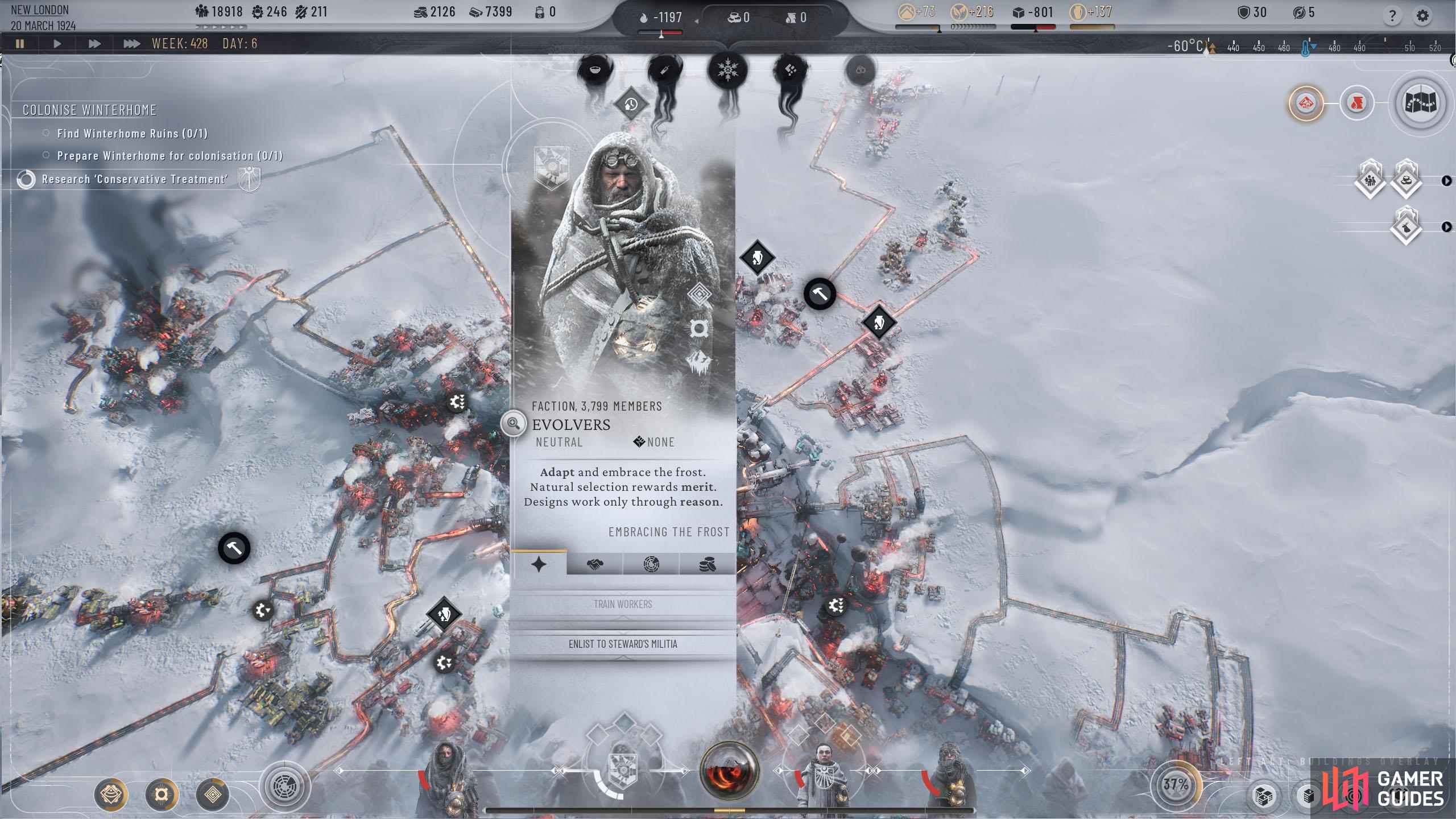

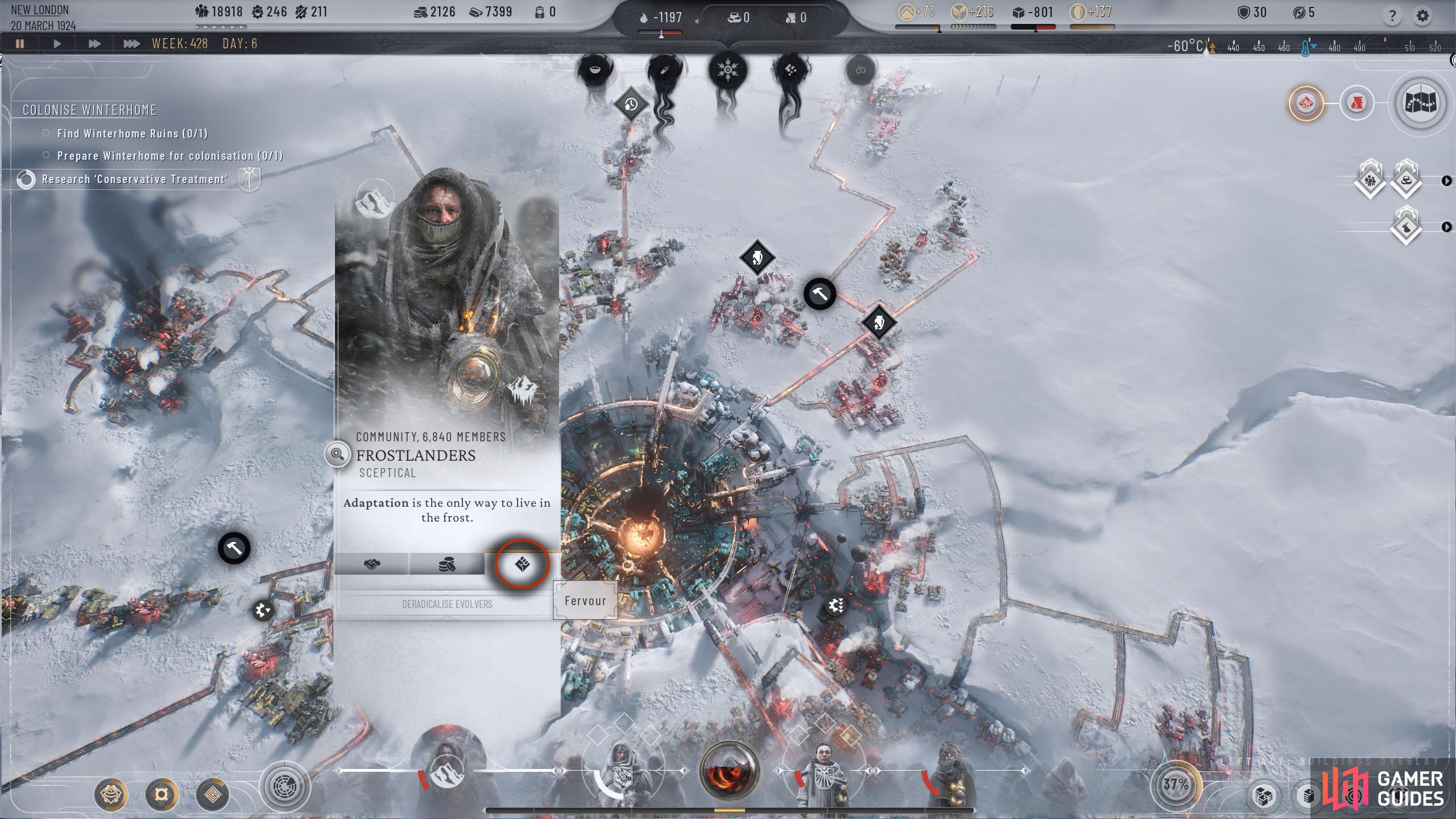
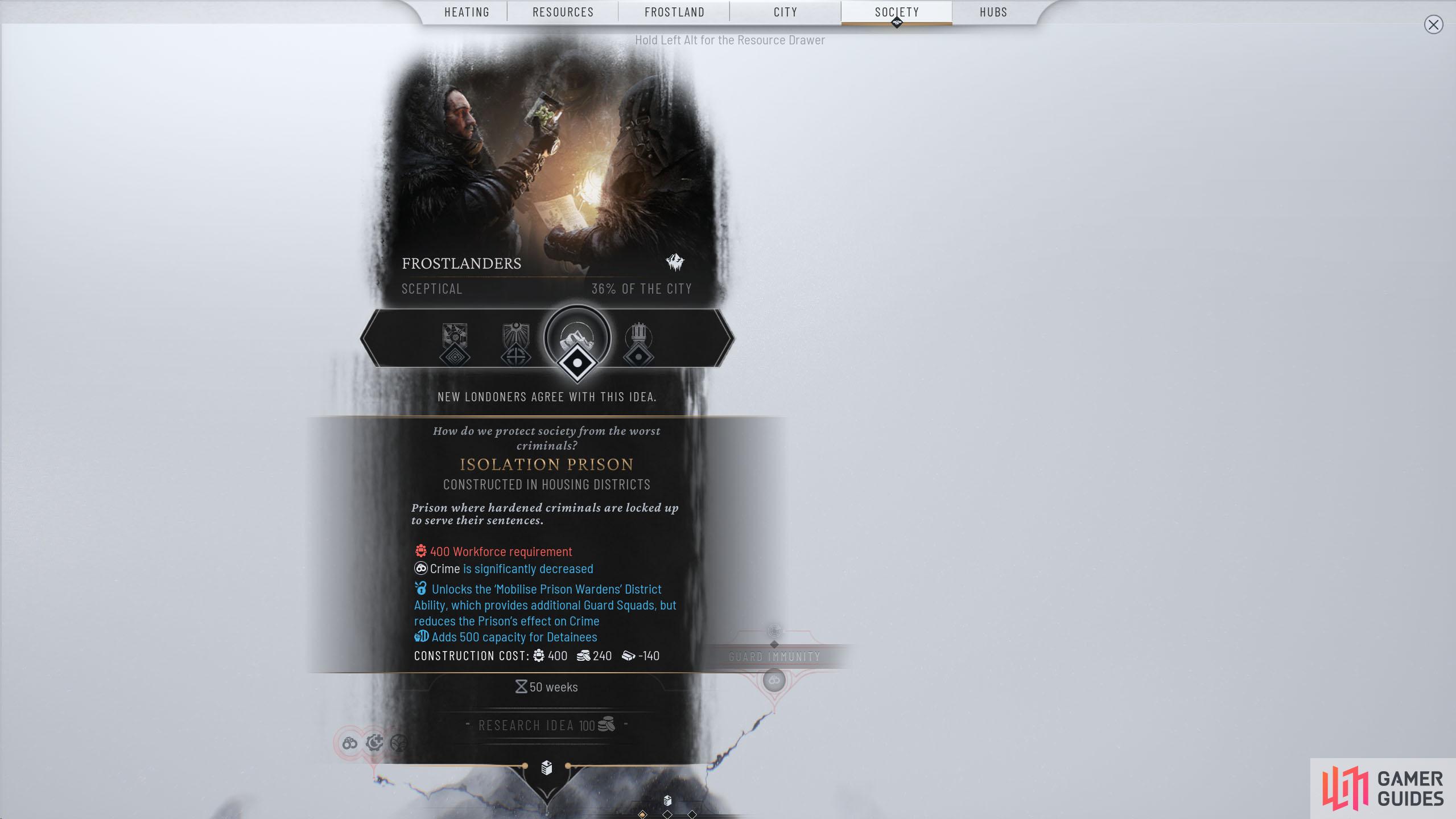
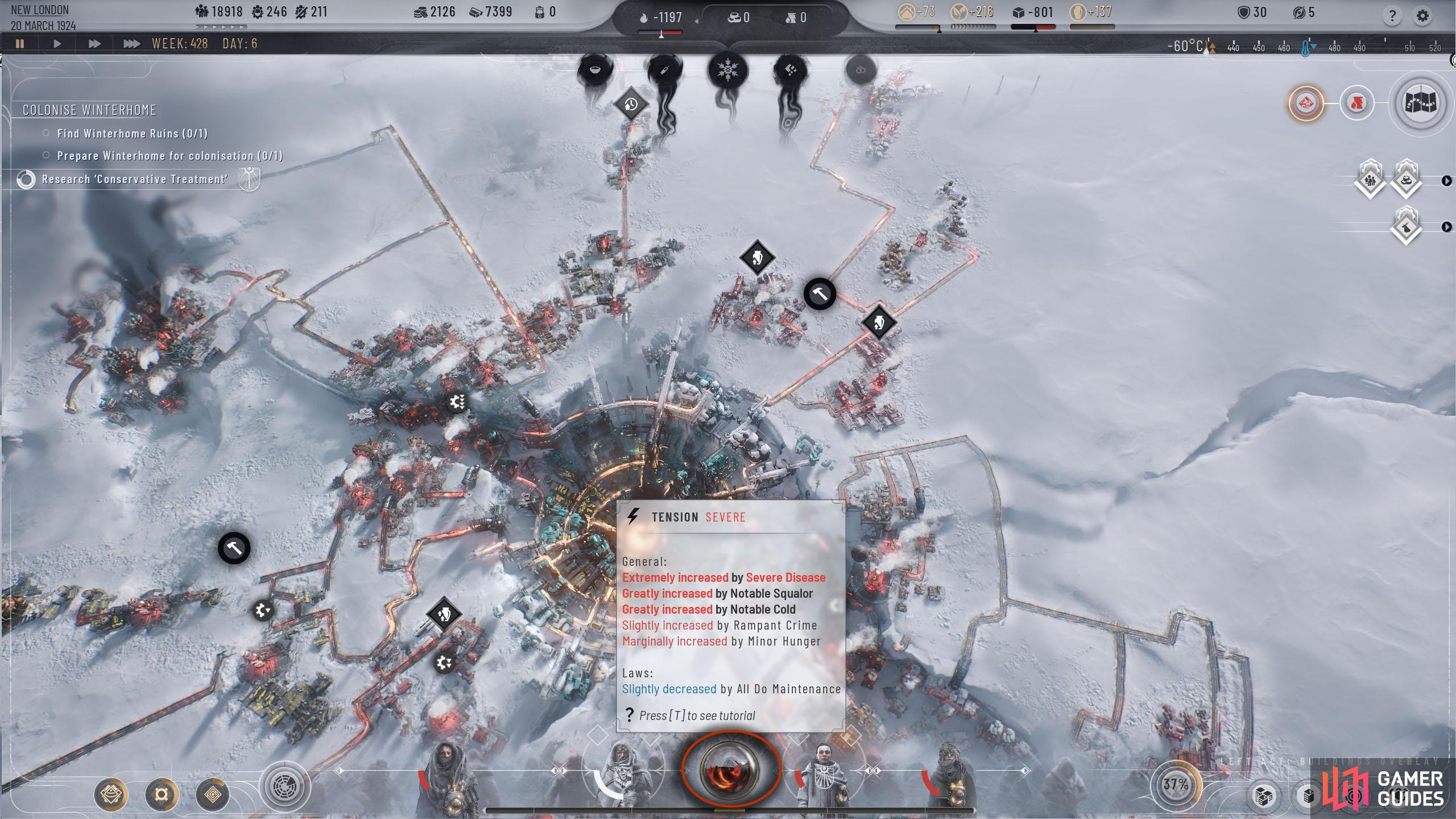

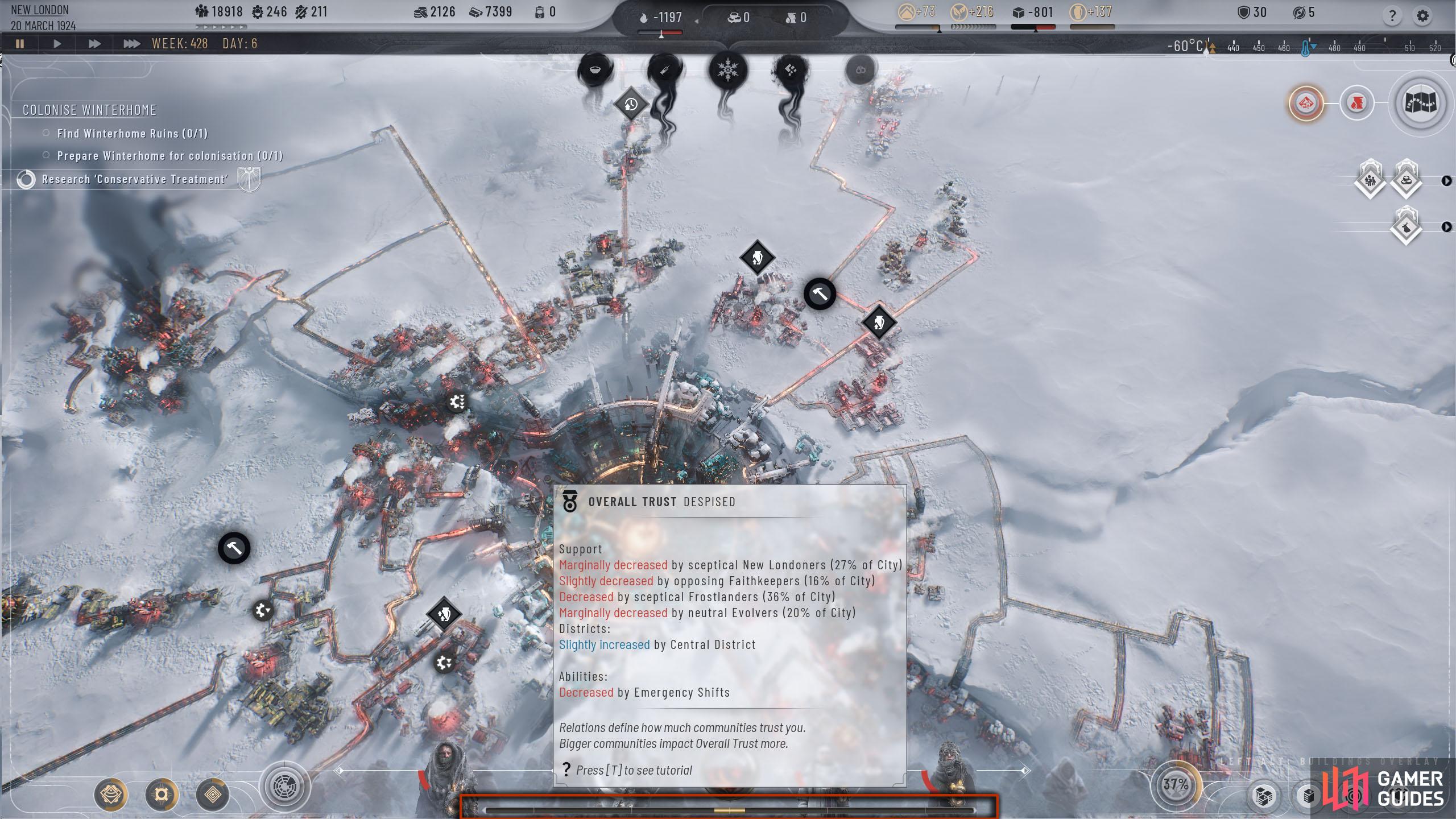


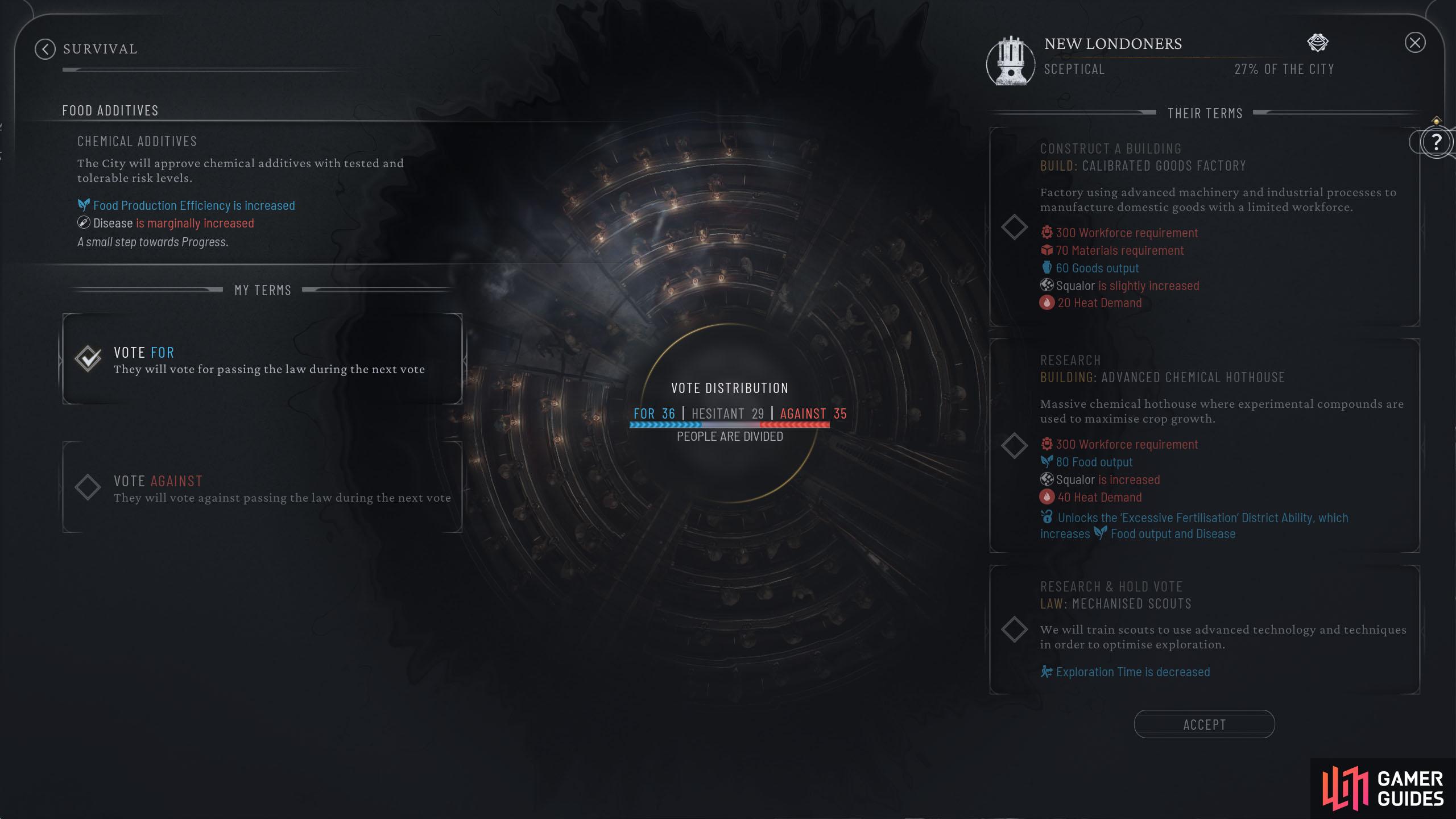
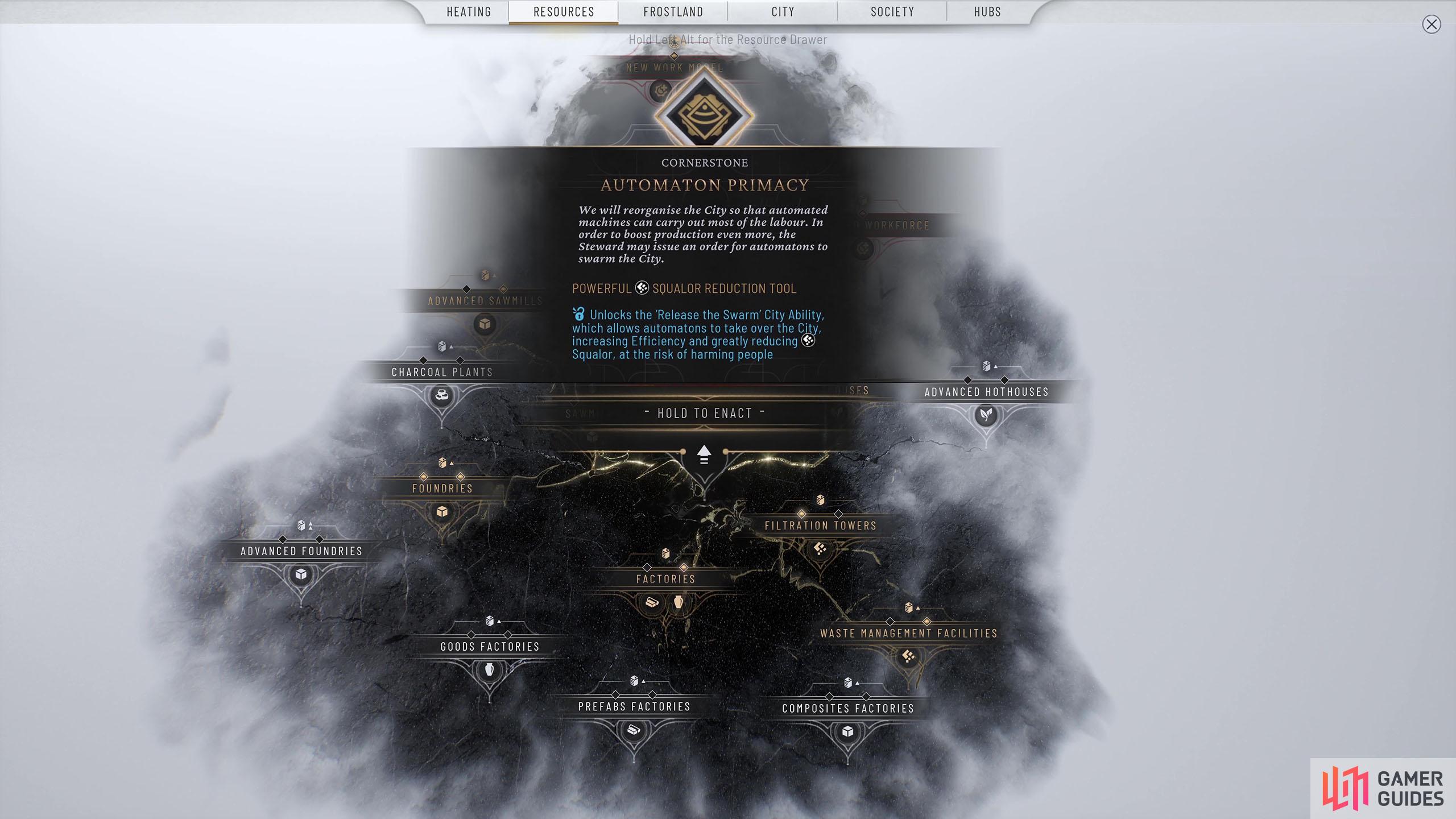
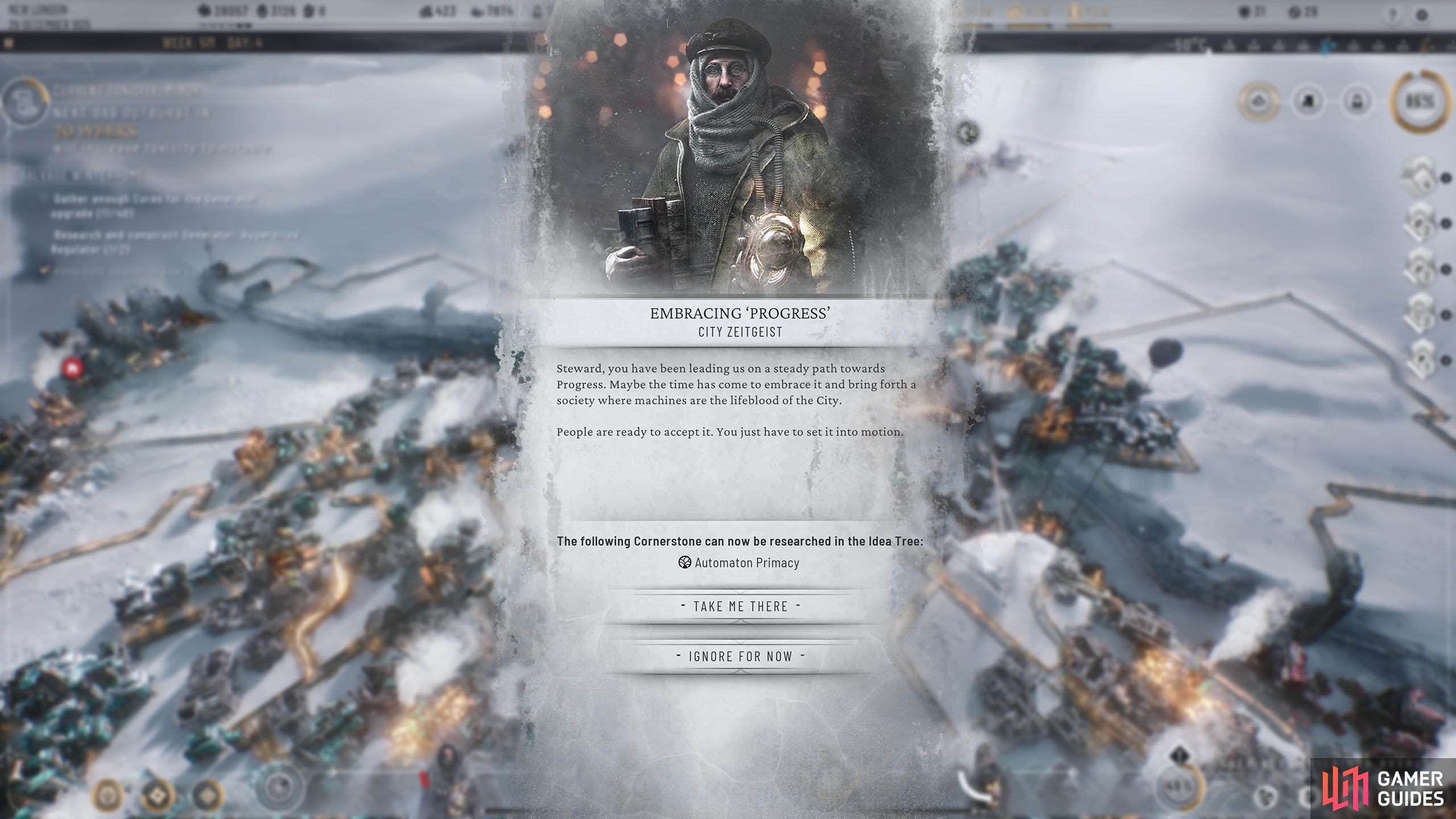

 Sign up
Sign up
No Comments